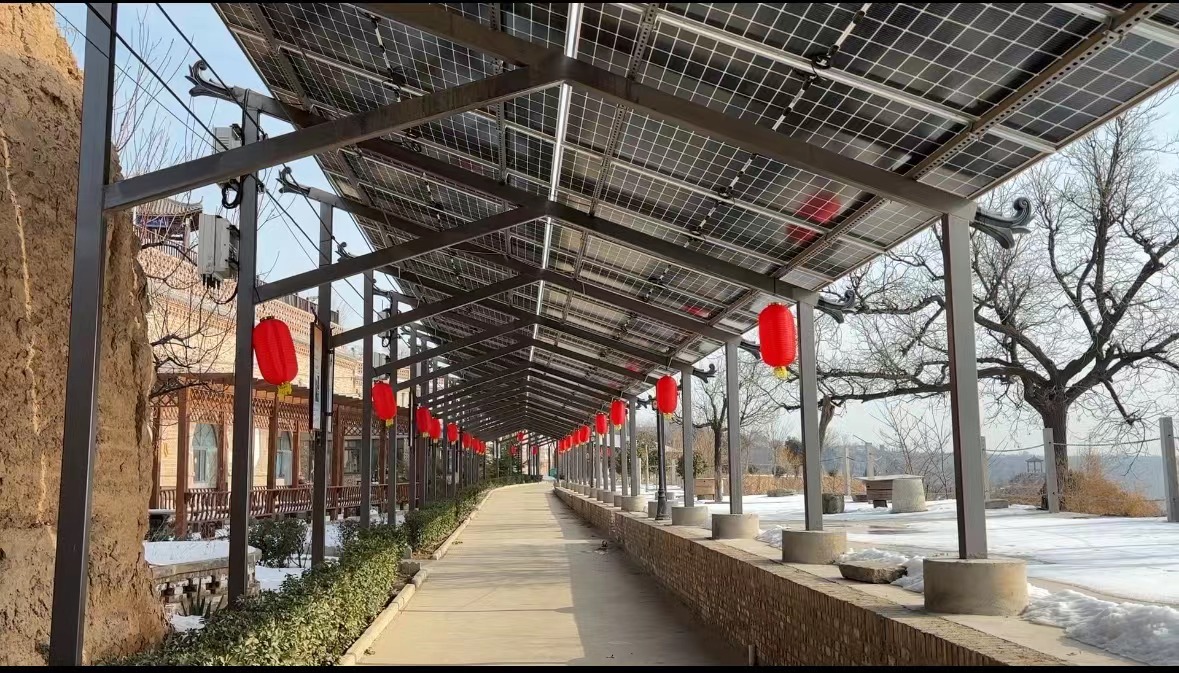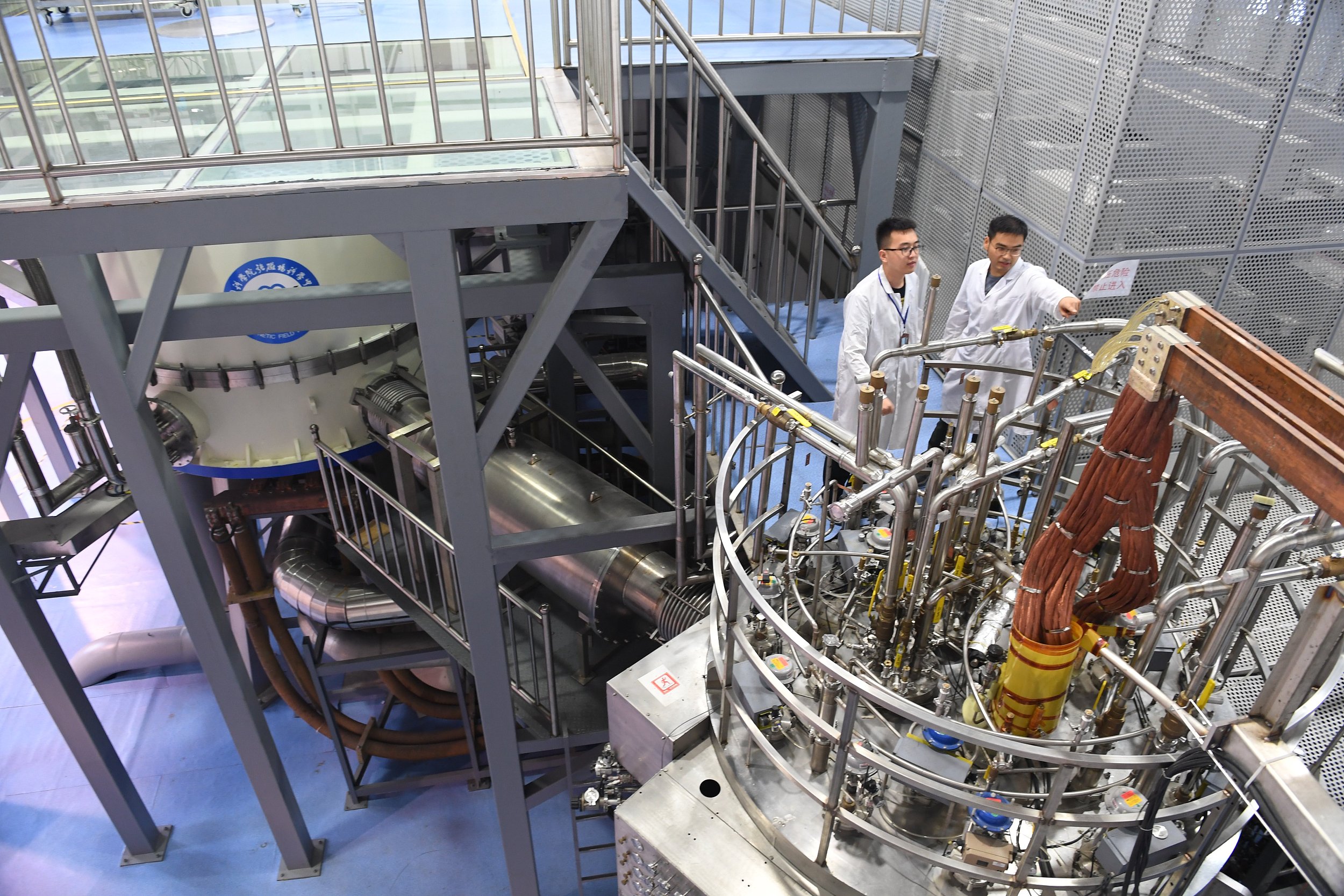'Zero-carbon' a New Calling Card for Shanxi's Zhuangshang Village

A photovoltaic corridor built in Zhuangshang village, Ruicheng county in North China's Shanxi province. (PHOTO: HAN Rong/S&T Daily)
By CHEN Chunyou & HAN Rong
In Zhang Baomin's home, the lights, television, induction cooker, electric kettle, heaters and other electric appliances all run on solar power, even the agricultural equipment in his apple orchard, such as weeders, electric saws and sprayers.
Zhang lives in Zhuangshang, a village in Yuncheng city, Shanxi province in north China. When we walked into the village after a snowfall, the sign "China Zero-carbon Demonstration Village" at the entrance was particularly eye-catching in the snow.
Zhuangshang was awarded the title by the Global Environment Facility, the United Nations Development Programme, and China’s Ministry of Agriculture and Rural Affairs in April 2023. In the past, people's first impressions of this village used to be "remote" and "ancient", but now it is being widely talked about for its zero carbon initiative.
Zhang and his wife were preparing the Spring Festival holiday food for the family and guests in the kitchen, including fried oil cakes and fried doughnuts. An assortment of household appliances bubbled away on the stove. A black rectangular device below the power socket, connecting the power cord, caught our attention.
"This is an arc-extinguishing module attached to the photovoltaic (PV), energy storage, direct current (DC) and flexibility (PEDF) distribution system installed in the village. It ensures the safe use of the DC generated by the distribution system for household appliances," Zhang told Science and Technology Daily.
The transformation dates back to 2019 when the Shanxi Guochen DC Power Distribution Engineering Technology Co. and a research team led by academician Jiang Yi from Tsinghua University jointly piloted the technology in Zhuangshang's 27 households, with an installed capacity of about 250 kilowatts.
To put it simply, the PEDF distribution system refers to laying PV panels on the roof of each house to provide flexible services for the external power grid, according to Han Yufei, office director of Shanxi Guochen.
The electricity generated by these households not only meets their basic daily needs such as cooking and heating, but the surplus power can also be used for Internet surfing and transportation.
Zhang pointed to a large rectangular iron box on the bedroom wall. Commonly known as the "DC power supply," it was a multi-terminal energy router. "The iron box below is for on-site energy storage," he said. "The excess PV power that is not used during the day is stored through it, storing 10 kWh of electricity per day, which is enough for use at night."
Because of the low-carbon initiative, life in Zhuangshang has undergone new changes. The villagers are concerned not only about their crop yields but also care about the environment.
"In the past, we went to town by oil-consuming tricycles, which emitted black smoke. It cost over 10 RMB for a round trip of 40 kilometers. Now, with electric tricycles, it only costs a little over 2 RMB," Zhang said.
The village is also transforming its abandoned cave dwellings into PV courtyards, and barren slopes and wasteland into PV corridors.
According to official statistics, as of January 25, the PEDF distribution system in Zhuangshang had generated revenue of more than 1.5 million RMB, saving over 1,900 tons of standard coal and reducing carbon dioxide emissions by 4,900 tons.
Zhang has new plans for the Lunar New Year. "The air conditioners and kitchen hood at home are old items bought a few years ago and don't support the use of DC power," he said. "I will buy some latest appliances after selling the apples from the orchard so that it is more convenient to use this clean electricity."


